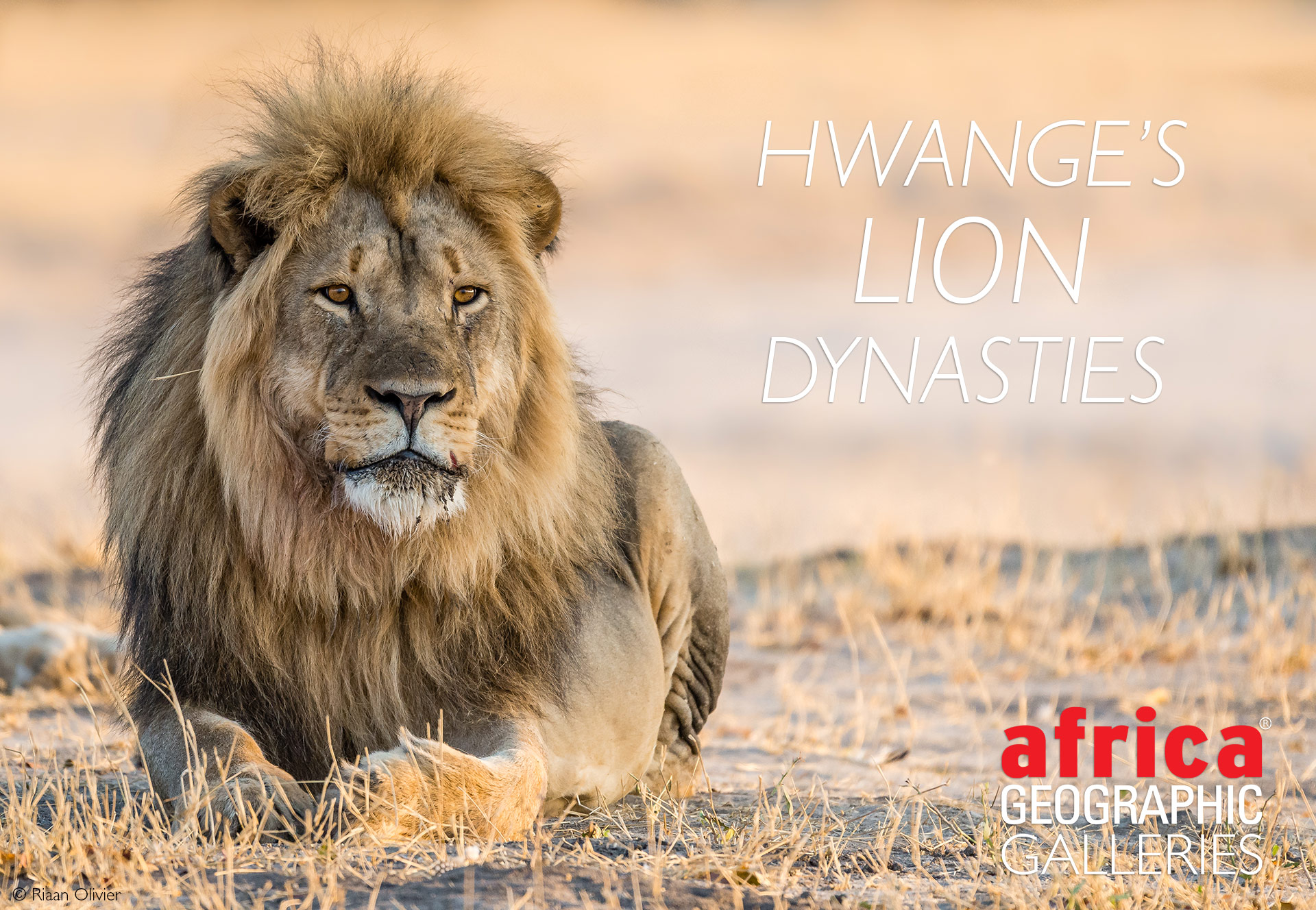
Legendary lions, & the threats to their legacy


Hwange National Park – Zimbabwe’s wild land of vast elephant herds and a haven for one of Africa’s largest populations of African wild dogs – is high on the list of must-visit safari destinations. But possibly Hwange’s most astounding drawcard is its charismatic lions, whose prides and coalitions play out an ongoing soap opera of power politics, warring factions, territory negotiations and legacy fortification.
Hwange is considered a Lion Conservation Unit by the IUCN, and its lions form part of a long-running lion monitoring project that aims to understand and conserve the lion population. For this reason, Hwange is known as one of the best areas in Africa to see lions in the wild. These lions are also well known for regularly preying on elephants.
Hwange is part of a massive open system stretching to Victoria Falls in the northwest and the Okavango Delta (and beyond) in the west. But as Hwange is an unfenced reserve, its free-roaming lions face many challenges. Illegal snaring, poaching, human-wildlife conflict arising from predation on livestock, the train passing through their territories and a glut of trophy hunting concessions bordering the national park all form part of the gauntlet run by these lions daily.
 Want to go on a safari in Hwange National Park? Check out this Hwange conservation safari. Or, check out our other ready-made Hwange safaris here.
Want to go on a safari in Hwange National Park? Check out this Hwange conservation safari. Or, check out our other ready-made Hwange safaris here.
Hwange was also the home of Cecil the Lion – whose death by trophy hunting on Hwange’s neighbouring Antoinette Farm in 2015 became an irreversible blight on Zimbabwe’s tourism history. Two years later, Cecil’s six-year-old son, Xanda, was also trophy hunted on the border of Hwange. Zimbabwe’s trophy hunting industry again made headlines when dominant male Kakori was shot in 2018, and dominant male Mopane was baited and shot by a bowhunter in 2021 – both on Antoinette Farm. (Read more about how trophy hunting of lions has wrought tremendous changes on Hwange’s lion demographics and reduced their numbers here).
However, there is a light on the horizon. Several landholders in a former portion of Antoinette Farm are trying to change the fate of these lions. These properties have partnered with stakeholders to create the Silwane Conservation Area, and hope to transform the area’s focus from trophy hunting to photographic tourism. This conservation area will serve as a buffer zone for these iconic lions, and provide safe passage for animals moving in and out of Hwange.
Although the targeting of Hwange’s lions by trophy hunters cast a long shadow over the national park, it is still regarded as a top destination for seeing and photographing lions. Today, many of Cecil and Xanda’s descendants live on in the park, continuing their legacy and legend.
We look back at some of Hwange’s legendary past and present lions below.

Cecil, the former king of Hwange
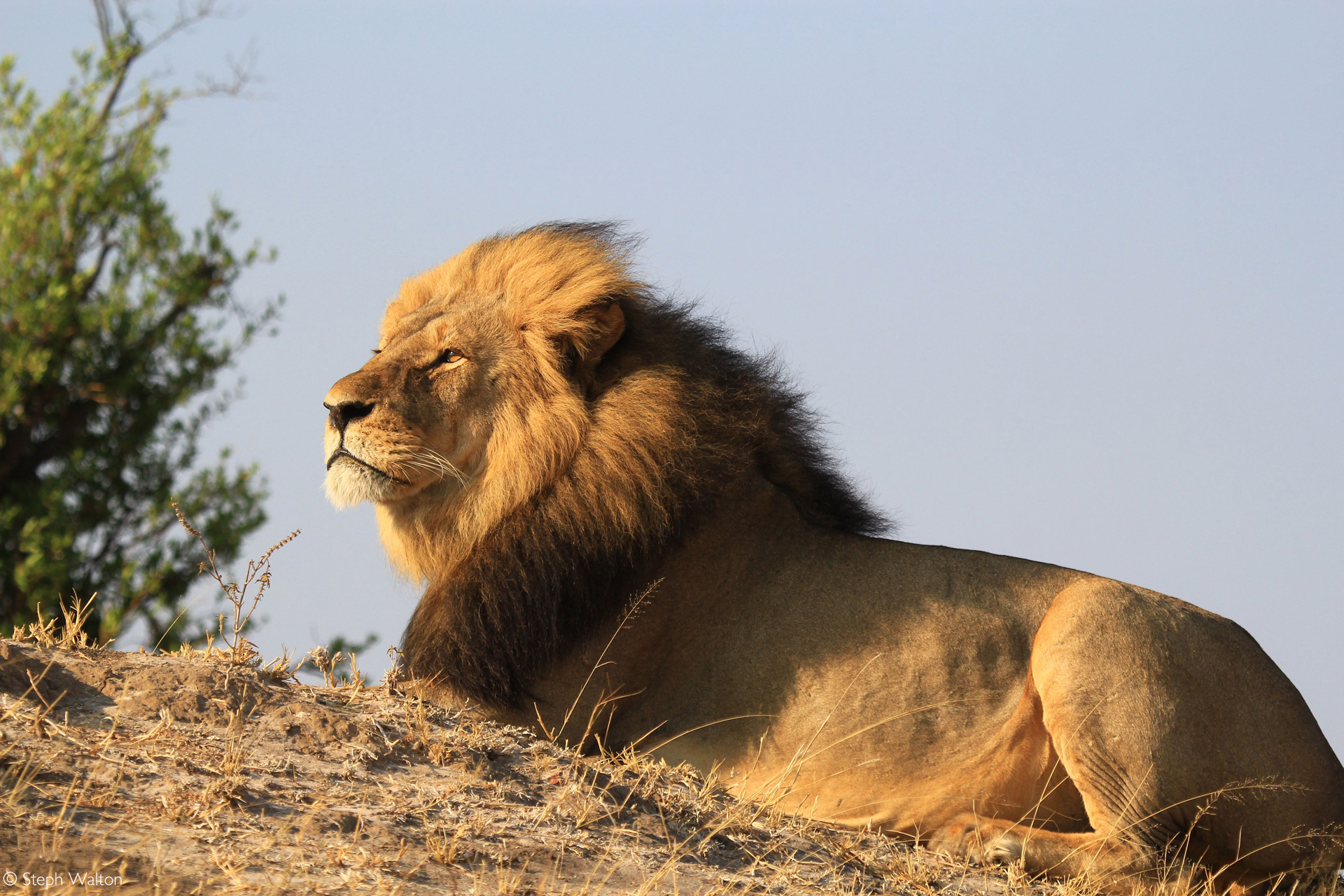
After trophy hunters killed the resident pride male, Cecil and his brother Leander formed a coalition that moved into the much sought-after area of Ngweshla in the national park. Ngweshla is prime real estate for Hwange’s lions as the grasslands hosts good numbers of buffalo, kudu, zebra and elephant. The area can support a pride of 20 or more lions. Cecil and Leander took over the pride known as the Spice Girls in 2008. After Leander was killed by the Askari coalition of males (a coalition including lions Judah and Jericho), Cecil was pushed out. Judah was later trophy hunted. Jericho and Cecil, both having lost their coalitions, formed a coalition, and the two took over the Ngweshla area.
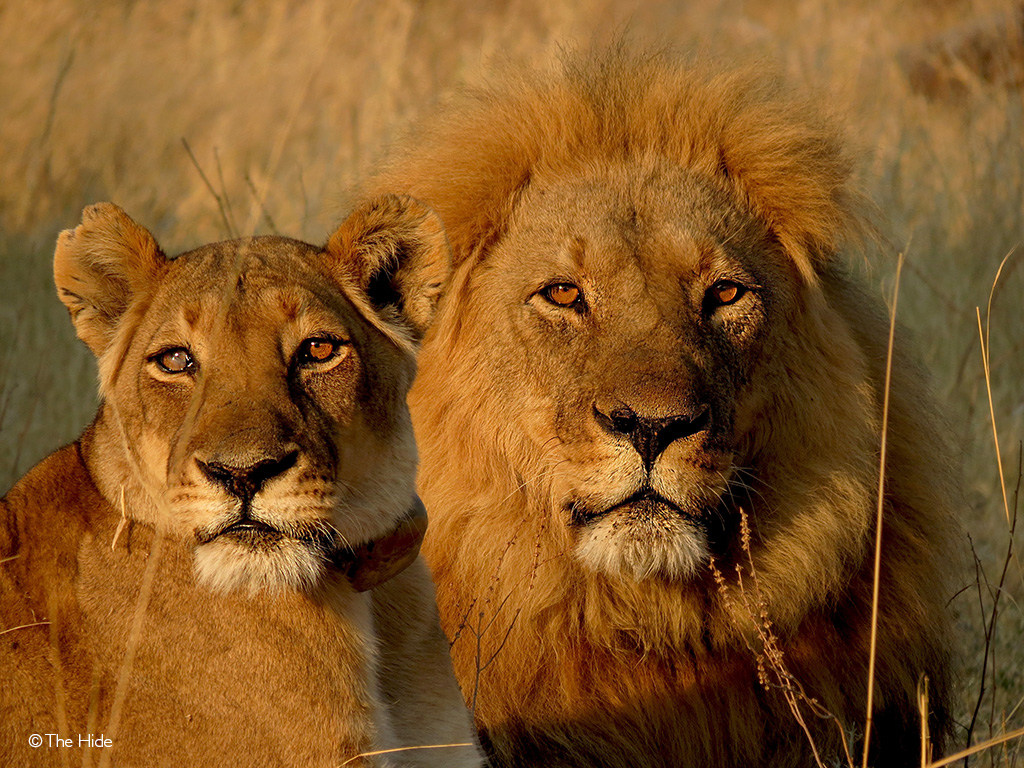
In 2015, Cecil was shot by trophy hunter Walter Palmer with an arrow from a compound bow, wounding him. Palmer then tracked and killed Cecil the following morning – 10–12 hours later. Cecil was killed on Antoinette Farm, which is separated from Hwange by only a railway line. Before his death, Cecil had been much loved by visitors to Hwange for many years, and was a major drawcard for those visiting the area. After Cecil’s death, Jericho moved to the area around Hwange’s Kennedy Campsite, before dying of natural causes in 2016.
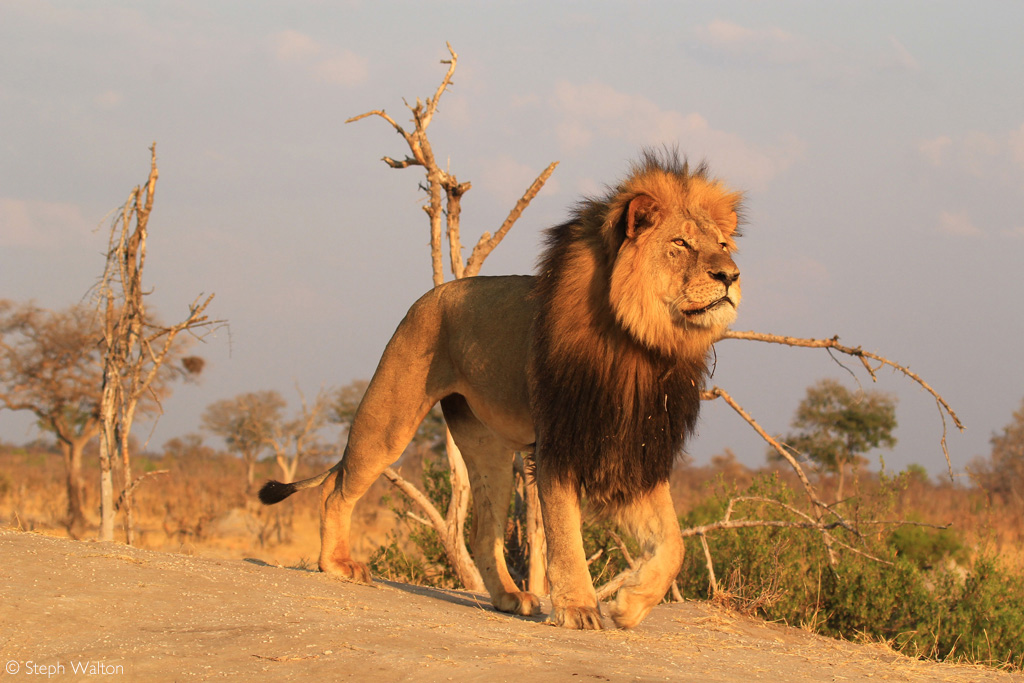
Mopane, ruler of Somadada and Guvalala
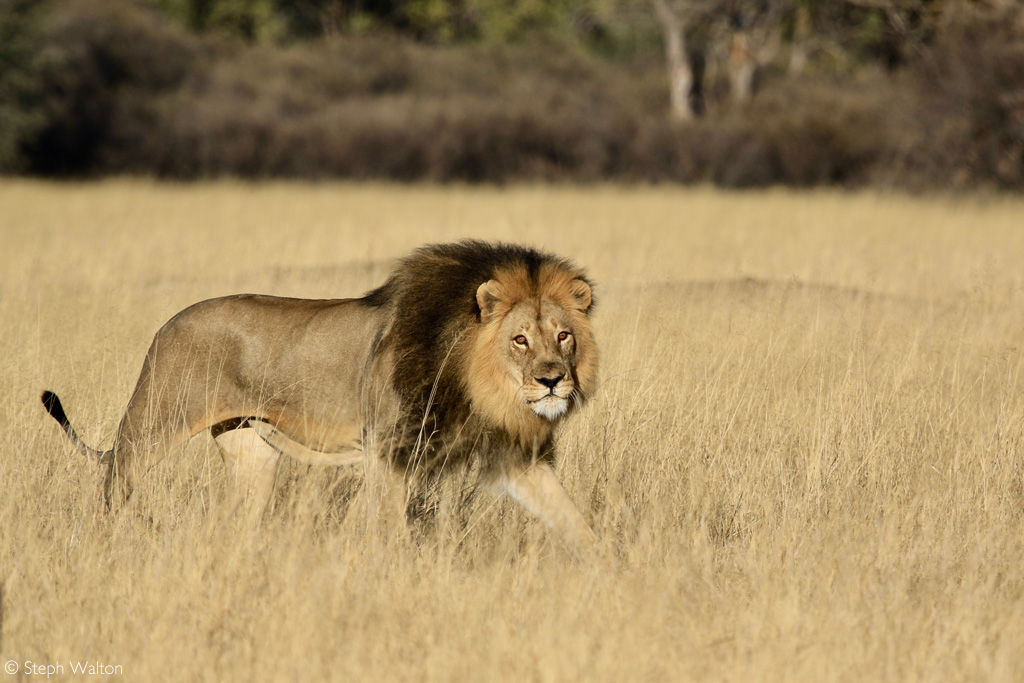
Mopane was another dominant male of Hwange, who was dominant over two prides at the time of his death by trophy hunting. He was well known for his disdain for vehicles. Visitors were warned to keep their distance, and photographs of fleeing vehicles followed by a determined Mopane chasing them are plentiful. Mopane was dominant in the East of Hwange, ruling over the Somadada and Guvalala prides. He was in a coalition with another male lion, Seduli, and both lions were frequently seen by visitors to photographic lodges in Hwange. In August 2019, Seduli was lured from Hwange and trophy hunted. After Seduli’s death, Mopane mated with the two lionesses of the Somodada pride, producing 8 cubs. Sadly, two of these cubs were killed by a train while trying to cross the tracks.
Interestingly, Mopane appeared to have tolerated two sub-adult males in the Guvalala pride who were not his descendants. It would have been interesting to see how this dynamic would play out over the years. Mopane included Antoinette across the railway in his territory. Mopane was trophy hunted by a bowhunter in August 2021.
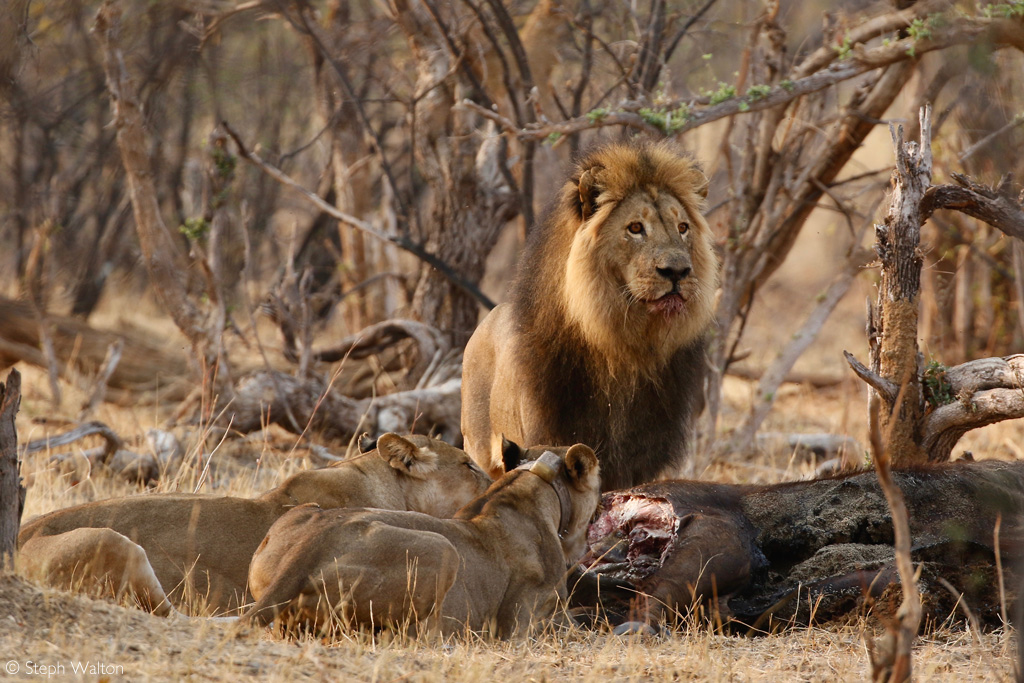

Humba and Netsai – blood brothers of Hwange
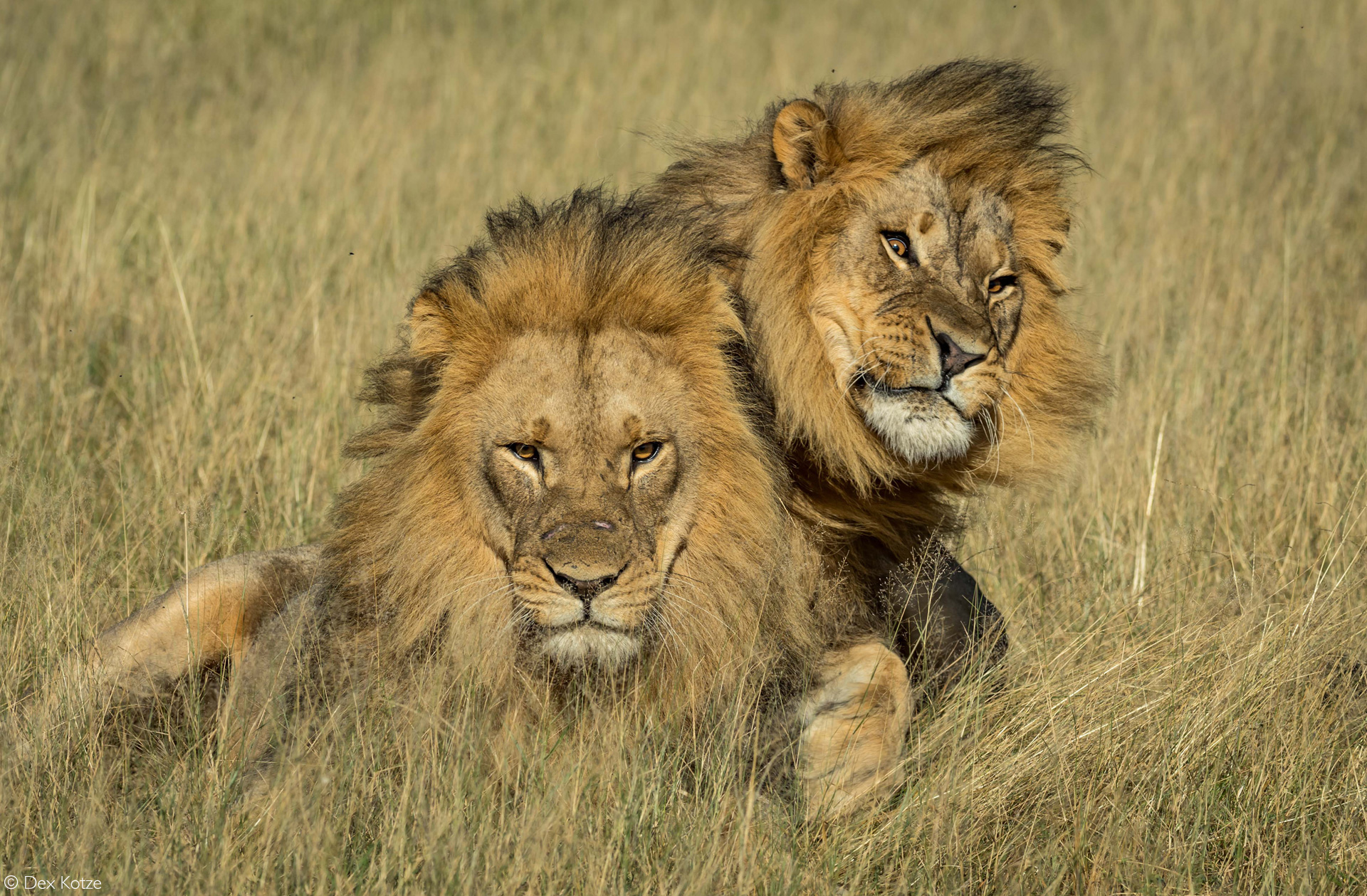
Well known to tourists to Hwange National Park, Humba and Netsai were brothers of the Nora pride, fathered by Seduli. Born one year apart (Humba in 2013 and Netsai in 2014), they later formed a coalition and were very fond of one another. The photogenic pair had been spotted together since 2018 and were well known for their tolerance of vehicles. The magnetic duo quickly became popular with tourists, for their bold demeanours and brotherly bond. They were unofficially dubbed “Zimbabwe’s National Treasures”.
They moved in after the formerly dominant male Bhubezi was displaced in 2018, and Humba mated with Cecil’s daughters. Humba and Netsai both sired several litters. In 2022 a trio known as The Baggage Handlers began making moves on the prized Ngweshla territory and, four months later, Humba and Netsai were ousted from their territory. They moved to a new area near Kennedy Campsite. They included the area where Silwane Conservation Area is situated today in their territory, as well as the greater Antoinette area and neighbouring trophy hunting concessions. They also chased Thys, a famous lion of the Guvalala pride, out of the Kennedy area. Netsai and Humba later killed all of Thys’s cubs.
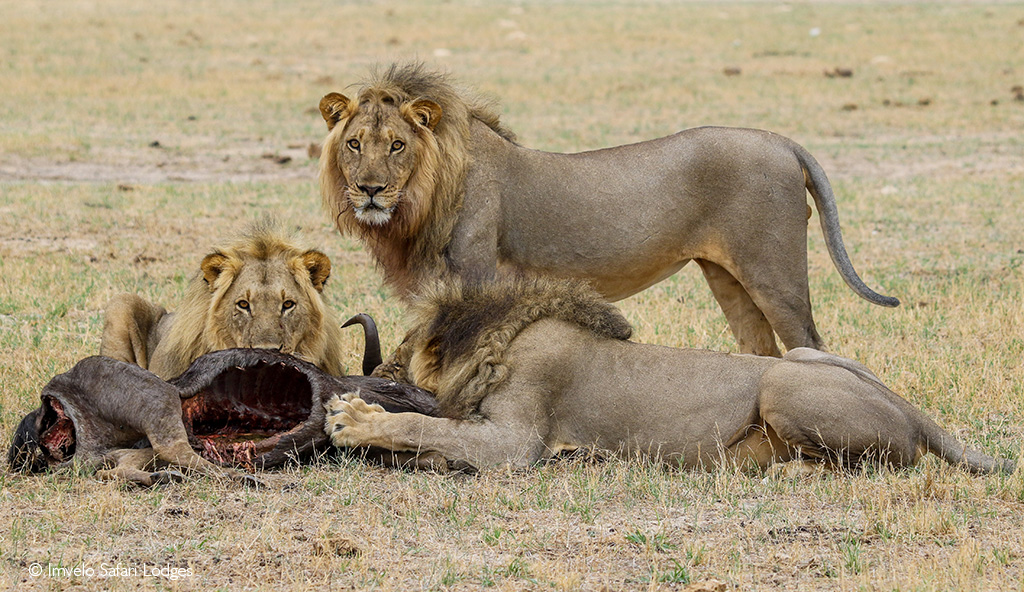
These handsome males delighted visitors in the area until late 2023, when Netsai disappeared. After his disappearance, news that Netsai had been trophy hunted began to filter to lodges in the area. The news of the breeding lion’s death devastated those who had admired him for such a long time.
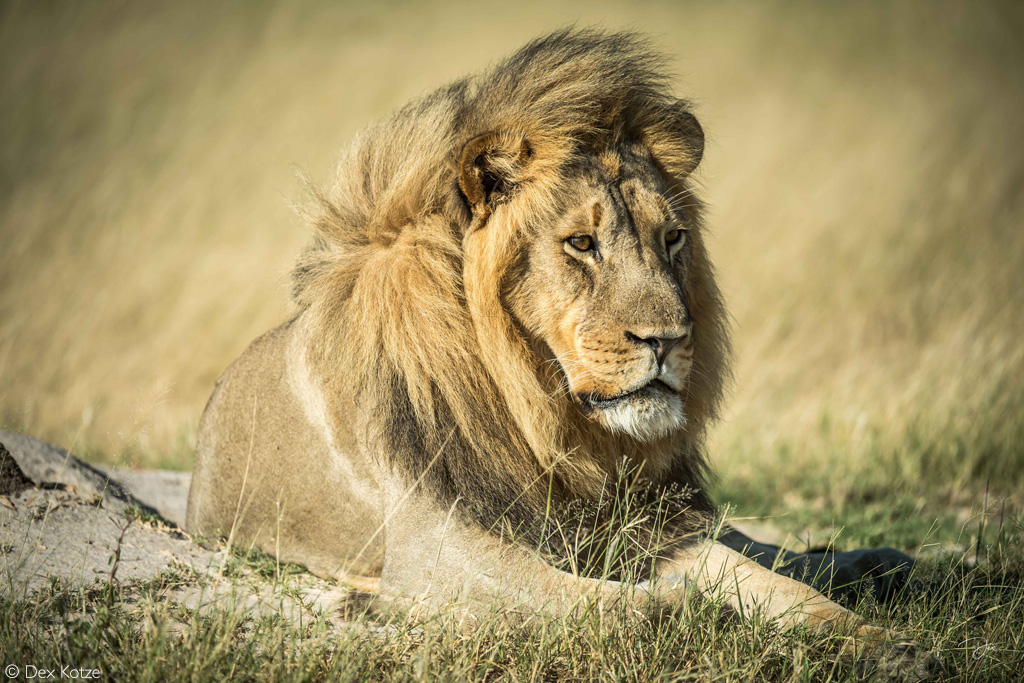
After losing his partner Netsai, Humba showed a marked change in behaviour. Usually relaxed around people, he started keeping to thickets and often remained out of sight. As the only male protecting a pride with two sets of cubs, his situation remained precarious. He continued to patrol his territory, including Kennedy and Silwane.
In total, 20 of Humba’s cubs have survived. This includes 12 cubs sired with Cecil’s daughters and litters with Nobuhle, a lioness of the Spice Girls pride. Nobuhle’s progeny went on to join the Beks pride.
Humba, who until recent months, had been mating with females, had played a key role in maintaining the strong prides in this area of Hwange. However, he has not been seen for months. Sources on the ground say that Humba was trophy hunted in June 2024, and that his satellite tracking collar was handed in. No further information is forthcoming. The loss of Humba will likely devastate his pride, cubs and wards – who have also not been seen for some time. There is concern that, without Humba around, encroaching males (such as The Baggage Handlers, who have extended their territory) may kill his youngest cubs (five of his cubs are currently 11 months old – making them too young to disperse in Humba’s absence). There is also a fear that the lionesses of his pride could move out of the park into communal lands where they are vulnerable to human-wildlife conflict.
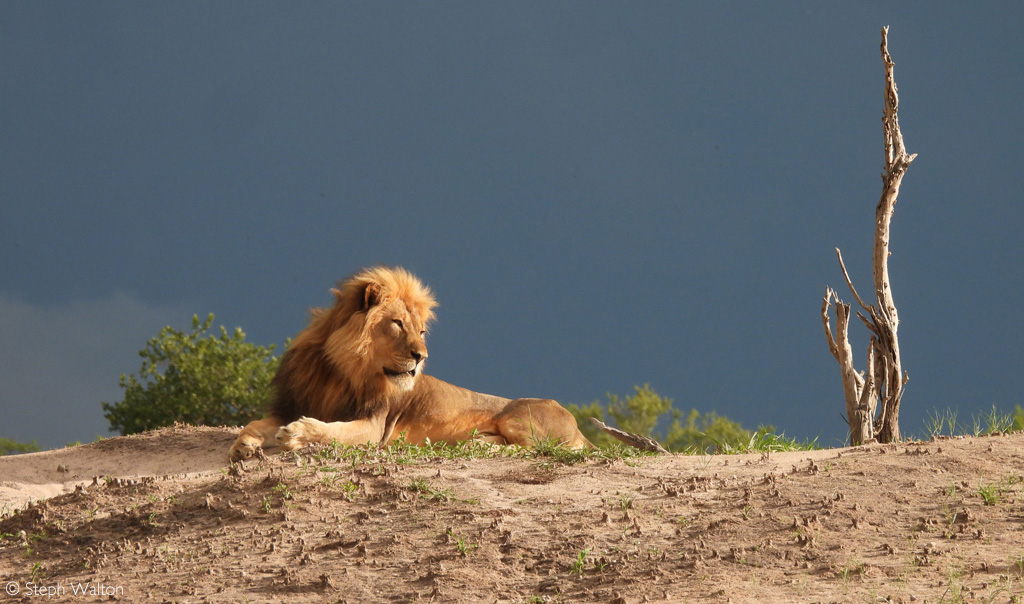
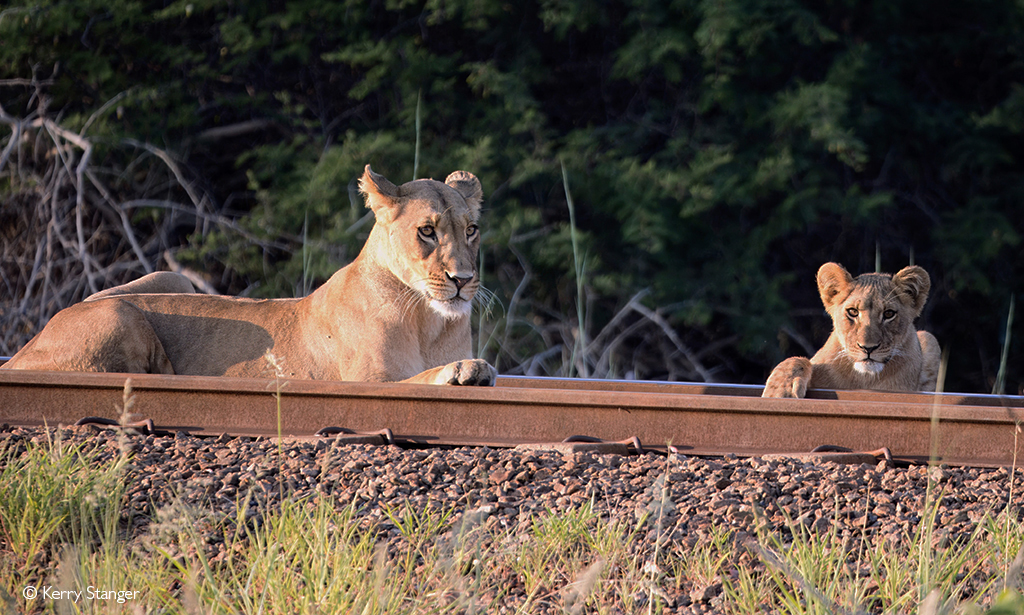
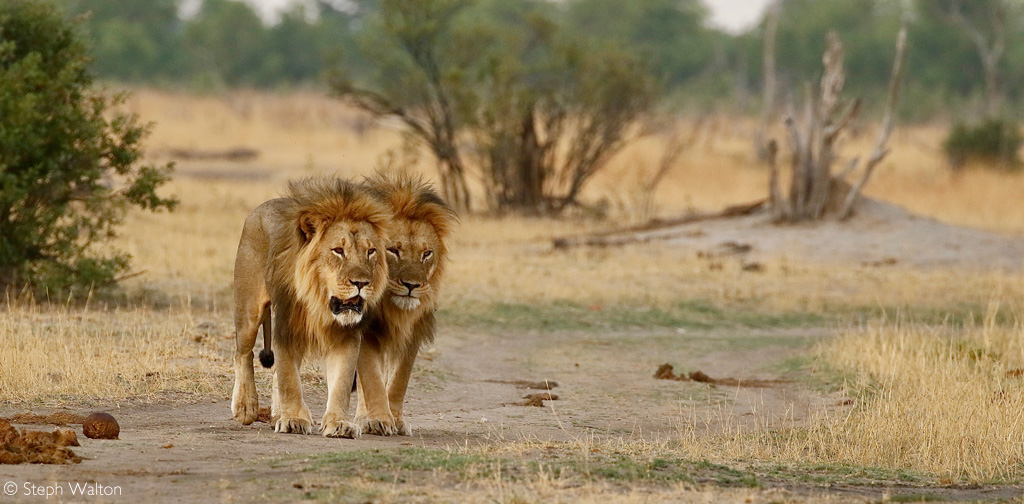
The future of Hwange’s lions
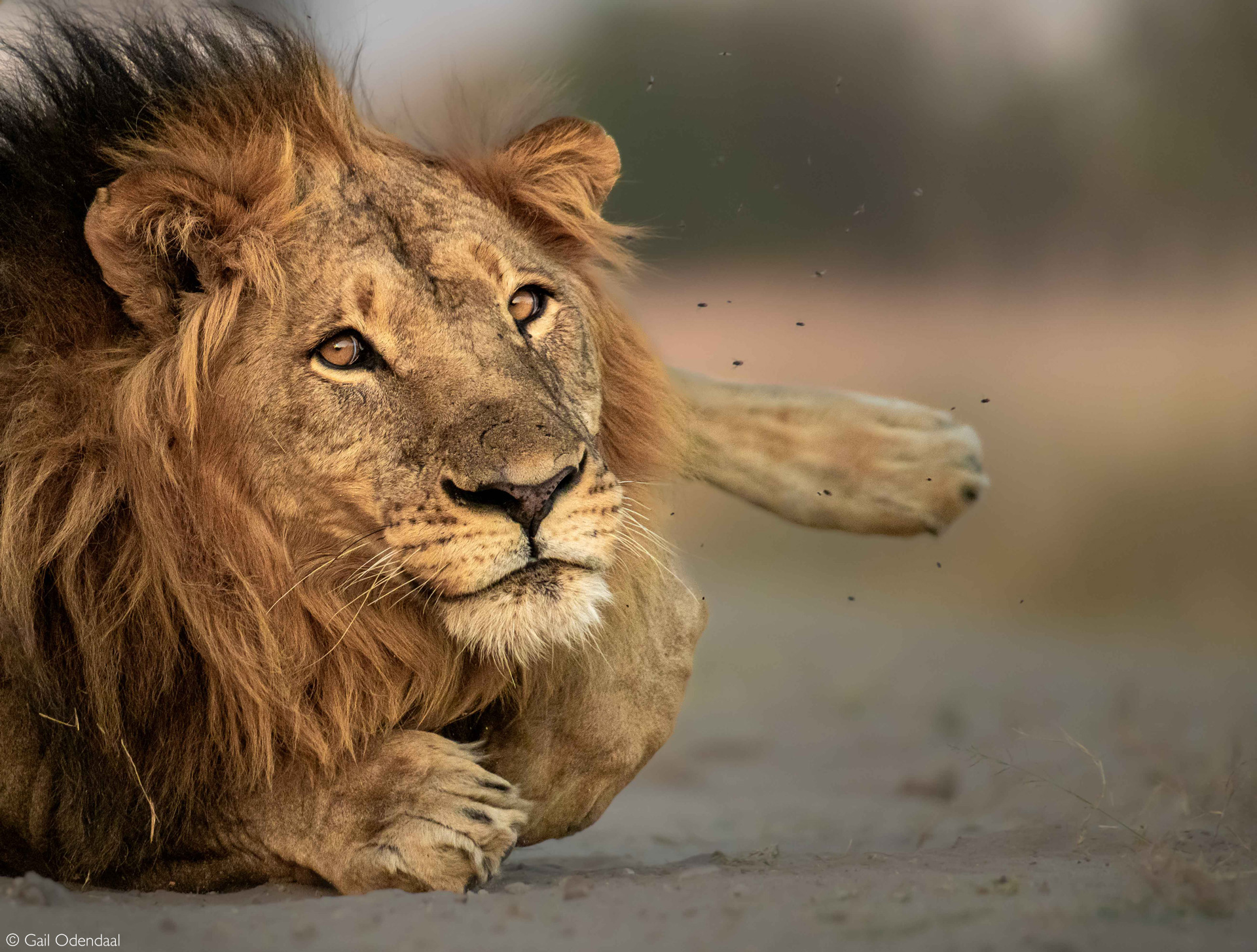
Despite the challenges and hardships facing Hwange’s lions, their resilience and the efforts of conservationists offer a beacon of hope. The park remains a sanctuary where these magnificent creatures can continue their legacy, captivating visitors. Through ongoing conservation initiatives and a growing focus on sustainable tourism, such as this Hwange conservation safari, Hwange National Park stands as a testament to the power of collective efforts in preserving one of Africa’s most iconic species for generations to come.
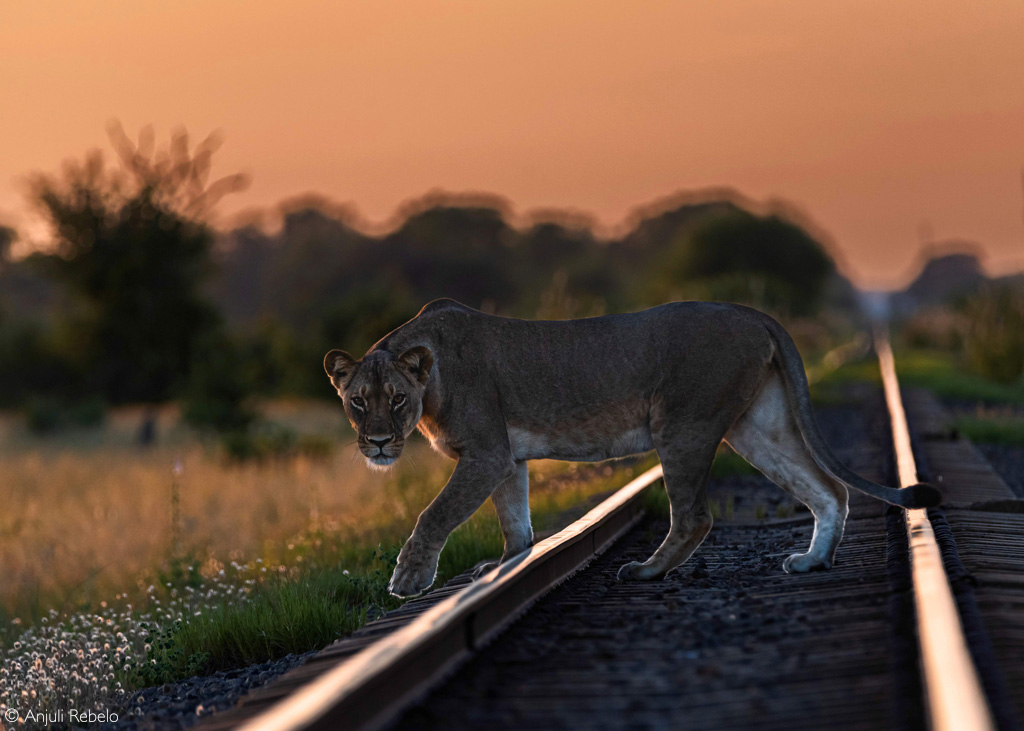
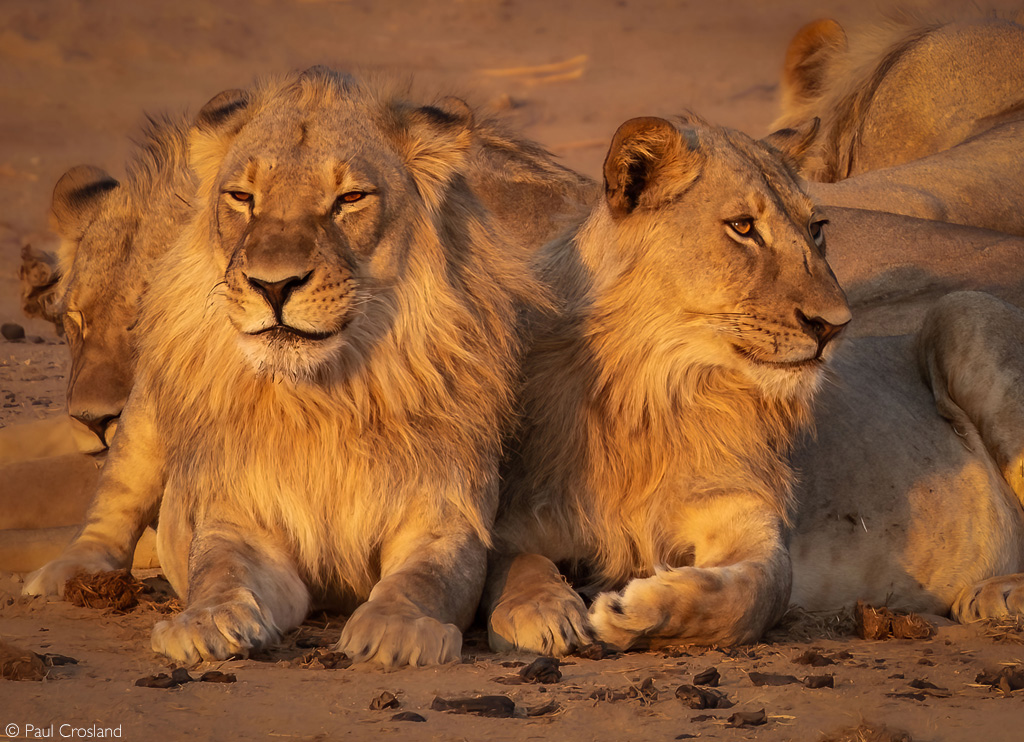
Further reading on Hwange and its lions
-
- Zimbabwe’s oldest and largest national park, Hwange is a safari paradise that hosts large populations of elephants, lions and wild dogs. Read everything there is to know about Hwange here
- Can an African safari bring healing? Aaron Gekoski heads to Zimbabwe to explore Hwange and Matobo National Parks to find out. Read more here.
- Trophy hunters killed breeding lion Mopane – from Zimbabwe’s Hwange National Park – in a mirror of the Cecil tragedy. Here’s how we told it when it happened
To comment on this story: Login (or sign up) to our app here - it's a troll-free safe place 🙂.![]()




